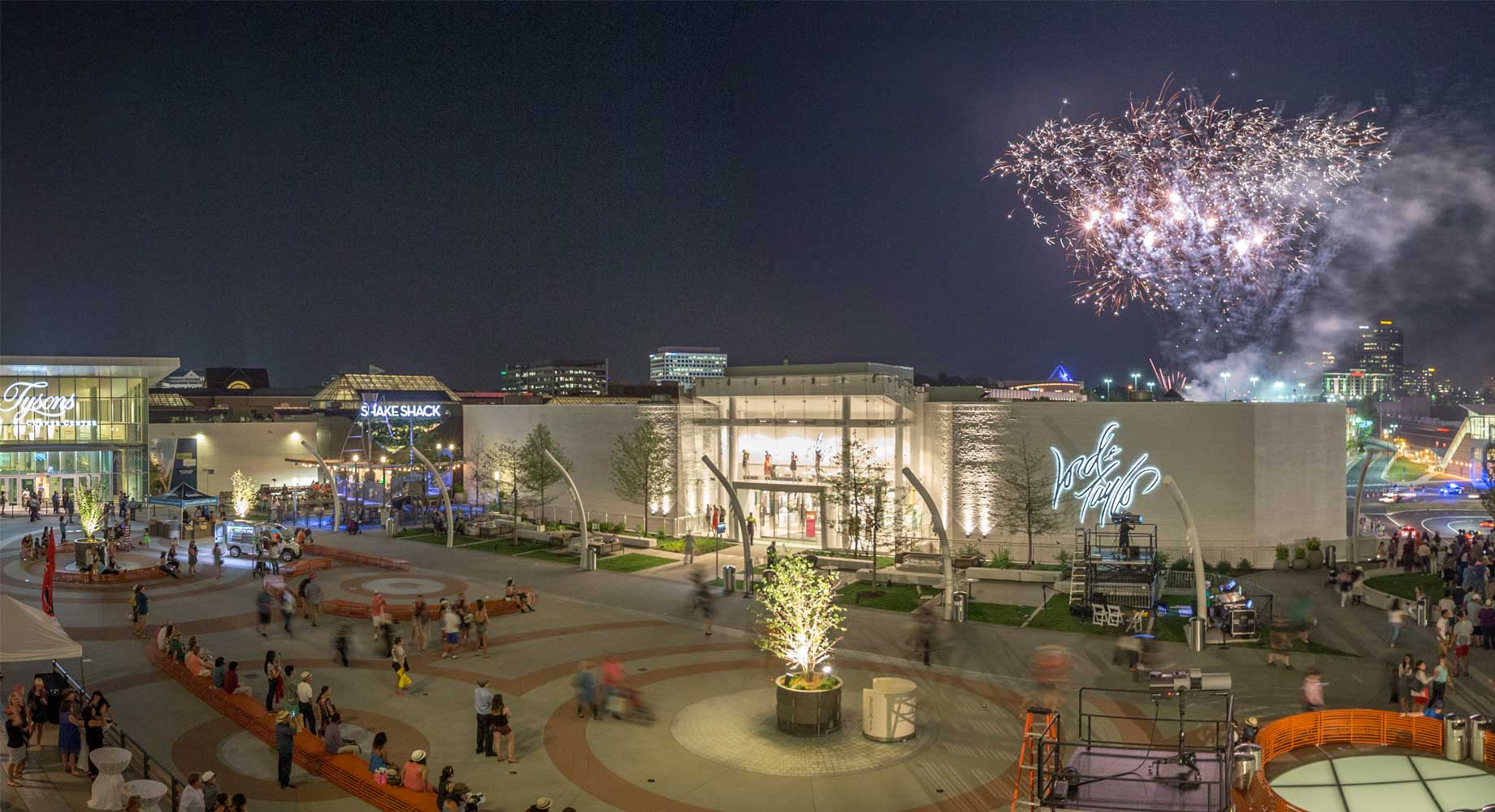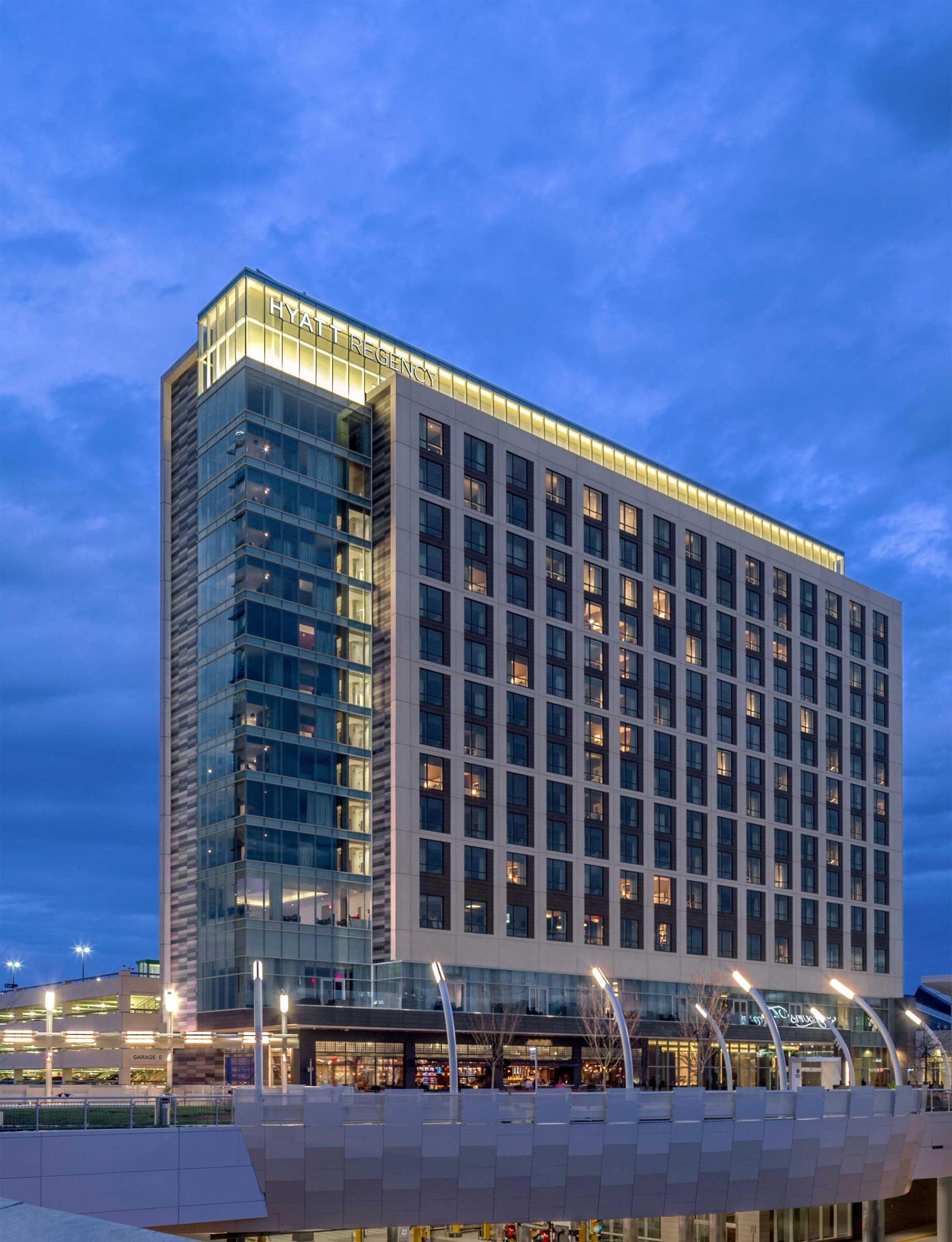Tysons Corner Center, one of America’s most prominent malls, celebrates its 50th birthday this week.
Since its opening by Lerner Enterprises in 1968, the Fairfax, Va., mall has doubled in size, to 2.4 million square feet, and is now one of the 10 largest malls in the U.S. By 2013 it boasted an assessed value of $1 billion, making it one of the most valuable properties in the Greater Washington area.
"Tysons Corner Center has always been the shopping mall for everyone," said Geoff Mason, assistant vice president of property management at Macerich, speaking to the Fairfax County Times. Macerich acquired the property in 2005. "Customers find everything from lower-priced clothing to high-end, luxury, Louis Vuitton–type brands. Our goal has always been to serve the entire market, and we continue to do that."

The Plaza CallisonRTKL's Jeff Gunning: 'The heart of the project and linchpin of the entire design is the elevated plaza' (photo: CallisonRTKL)
The mall was a roaring success from the start, notes Roger Lewis, a professor emeritus of architecture at the University of Maryland and author of the Shaping the City column in The Washington Post. “People were fleeing to the suburbs; they all had at least one if not two cars, and this was how they were going to shop,” he told American University Radio (WAMU). “And of course, it proved successful. People showed up.”

A hotel was added in April 2015 (photo: CallisonRTKL)
Tysons Corner Center was originally anchored by Hecht’s, Lansburgh’s and Woodward & Lothrop department stores — all now gone. More recently, it became home to Nordstrom’s first East Coast store, in 1988; and to Apple’s first physical store, in 2001. The mall and its surroundings have continued to evolve. An office site and plaza were added in July 2014, followed by a hotel in April 2015 and then residences the month after that.
“The heart of the project and linchpin of the entire design is the elevated plaza,” CallisonRTKL Senior Vice President Jeff Gunning told SCT. “With Metro planning a new elevated station across Route 123 from the property, we conceived a connection at the same level over the road and the mall ring road, through new mixed use and directly into the upper level of the mall. The plaza became the hub — a town square connecting the office, residential and hotel buildings, with restaurants spilling out onto it — promoting movement of thousands of people per day across it into the enclosed retail. This allowed the existing mall ring road and service areas to continue to function below, creating a new outdoor plaza and living room floating above. The grass and paved plaza is flexible and available to host events such as concert series, seasonal ice skating, children’s programming and cultural festivals, drawing nearly 6,000 people for a recent summer concert. The plaza at Tysons is the new heart of the McLean community.”
“Tysons Corner is becoming a business hub. By 2050 we’ll have 200,000 jobs here [and] over 100,000 residents, and they’ll continue to need high-scale retail”
The center’s evolution is likely to continue. “Tysons Corner is becoming a business hub. By 2050 we’ll have 200,000 jobs here [and] over 100,000 residents, and they’ll continue to need high-scale retail,” said Gerald Gordon, CEO of the Fairfax County Economic Development Authority, speaking to WAMU.
Future growth at the mall is likely to be vertical and to include more residential space, says Mason. “When you go back 50 years," he told WAMU, "you’ll notice that hardly any of the tenants that existed then exist now."
By Edmund Mander
Director, Editor-In-Chief/SCT


